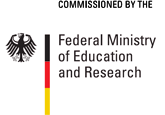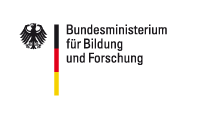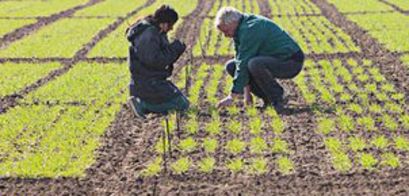General information
- Partner country/region: Russia
- Duration: 01/01/2012 -31/07/2014
- Partner institutions:
- Helmholtz-Zentrum Geesthacht (HZG) - Centre for Material and Coastal Research
- Strube Research GmbH & Co. KG
- More information: www.strube-research.net
Task/objective of funding measure
Thanks to optimised machine technology and cultivation processes, Russia will be able to achieve very high increases in agricultural yields. In order to realise this, however, the varieties offered to Russian farmers must also be improved regarding yield, quality and health. The aim of this project is to select new wheat varieties by combining Russian and German breeding material of summer and winter wheat. At the same time, the positive properties of the Russian varieties, such as winter hardiness and early ripening, will benefit the German breeding programme. In order to accelerate the breeding progress, the double-haploid technology for winter and summer wheat is to be used.
Special results and successes of the measure
- A long-term cooperation with optimisation potential was set up.
- The jointly developed varieties are officially registered for variety approval in Russia. This generates license income.
- The newly created varieties increase the income potential and the quality of wheat production in Germany and Russia.
- The new product will be able to establish itself on the Russian market.
- The partnerships that have been formed will manifest themselves in a future economic cooperation. The relevant cooperation contracts are currently being prepared.
Use of the results
In order to achieve the set targets, the German partner closely cooperates with the Russian Academy of Agricultural Sciences in Kursk (winter wheat) and the Agricultural Research Institute (ANIIS in Barnaul (summer wheat). First joint hybrids were harvested in the summer last year and sown again in the autumn. 13 hybrids were used to create double-haploid plants in the laboratory, which were then multiplied in the field in 2013. An additional 100 new hybrids were created in 2013. In terms of summer wheat, 12 hybrids were turned into double-haploid plants in 2013. In spite of hail damage in the summer of 2013, 792 could still be harvested. This material is already being grown in Russia this year. 15 new hybrids of German and Russian breeding material were created.
Added value of the international cooperation
This project formed sustainable partnerships, which have also been confirmed in cooperation treaties. The mutual support and scientific exchange between the German and Russian partners contributed to creating and successfully testing new wheat varieties with improved properties. Existing technology is to be used to register first varieties from the existing line pool in Russia in 2016 and 2017, which will be competitive on the Russian market.










